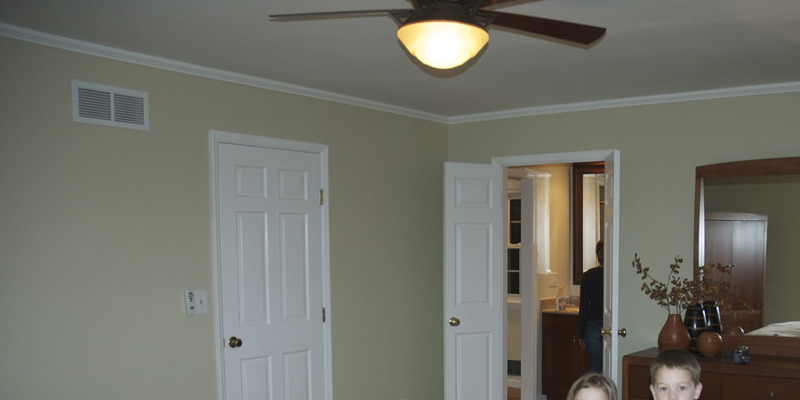Concrete floors possess a reputation for being cold, and it is true that concrete has a lesser insulating value than most other construction materials. Your concrete flooring is probably not the largest source of heat loss in your house, however, and if your flooring is cold, there are ways to improve its heat retention.
Concrete R-Values
The insulating capacity of a given material is indicated with a number called an R-value; the greater the R-value of a material, the more immune it’s to the transfer of heat from one side of the material to the other. The R-value of concrete varies based on the density of the concrete mixture. In general, low-density concrete has a greater R-value than prying concrete. The sort of concrete used for floor slabs typically has an R-value of 0.1 to 0.2 per inch of depth, meaning a 6-inch-thick slab would get an R-value between 0.6 and 1.2.
Concrete Floors and Heat Loss
Although concrete is not a particularly good insulator, heat loss or gain through a concrete slab is unlikely to be as important as heat transmission through above-ground parts of your house, such as doors and windows, which can be exposed to cold air and sunlight. If your house is generally well-insulated and energy-efficient, though, the relative loss of heat through the concrete floor may be more pronounced.
Alternative Flooring Materials
Some flooring materials have considerably better insulating capabilities than concrete. Three-quarter-inch hardwood floors, by way of example, comes with an R-value of about 0.7, and carpeting laid above a fiber-based carpet pad has an R-value of around 2. Laying either of these materials on top of a concrete floor might significantly increase the insulating power of the floor in comparison with concrete by itself. Ceramic tile, however, typically has an R-value comparable to or less than concrete.
Insulating a Concrete Floor
If you decide it is necessary to insulate your concrete slab flooring, it is important to see that the greatest potential for heat loss is through the borders of the slab that are in direct contact with the atmosphere in the exterior of the building, instead of through the top layer of the slab that is connected with the ground. Therefore, insulation will likely be most effective if it isolates the concrete flooring from the perimeter foundation or covers the exterior of the foundation wall.
